NEWS FROM THE PILOT
The spirit of place and the organization of space in the Mediterranean
The paper “The landscape and the hydraulic heritage as the basis for cultural tourim” by Prof. Desidério Batista, coordinator of the Portuguese pilot, was published in the journal Al-Sabîl – Revue d`Histoire, d`Archéologie et d`Architecture Maghrébines, from the University of La Manouba in Tunisia and presented at the study day organised by the University of Manouba on 30 septembre 2022.
The full paper in French is available at the following link.
Location
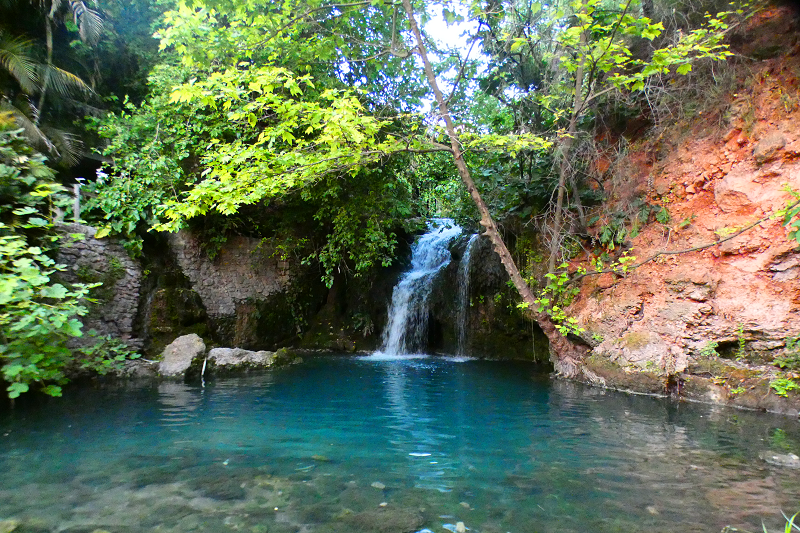
The Campina de Faro is located on the littoral of Algarve, between three historical cities, in the south of Portugal.
Responsible partner: University of Algarve
This pilot case will be directly linked to the Spanish and the Monti di Trapani (Italy) cases and will act as a cross-border action.
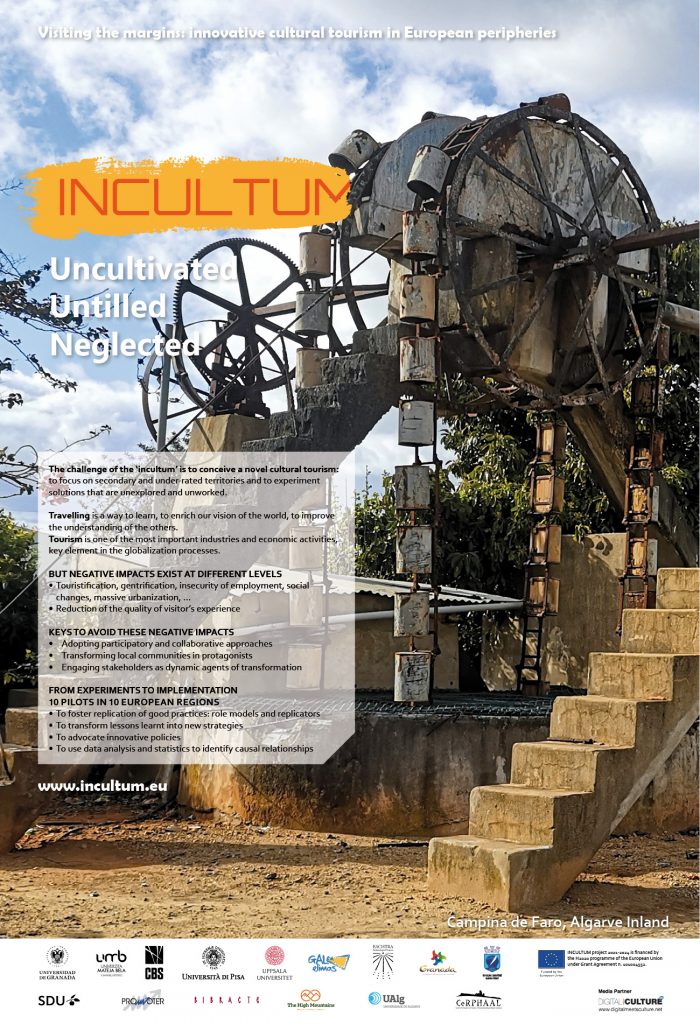
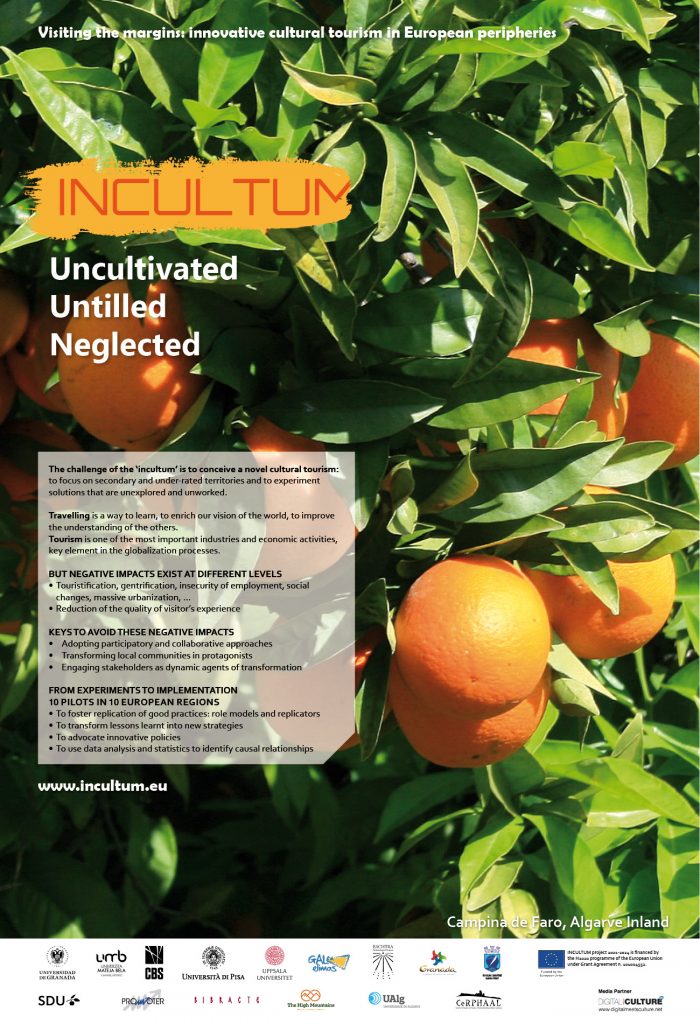
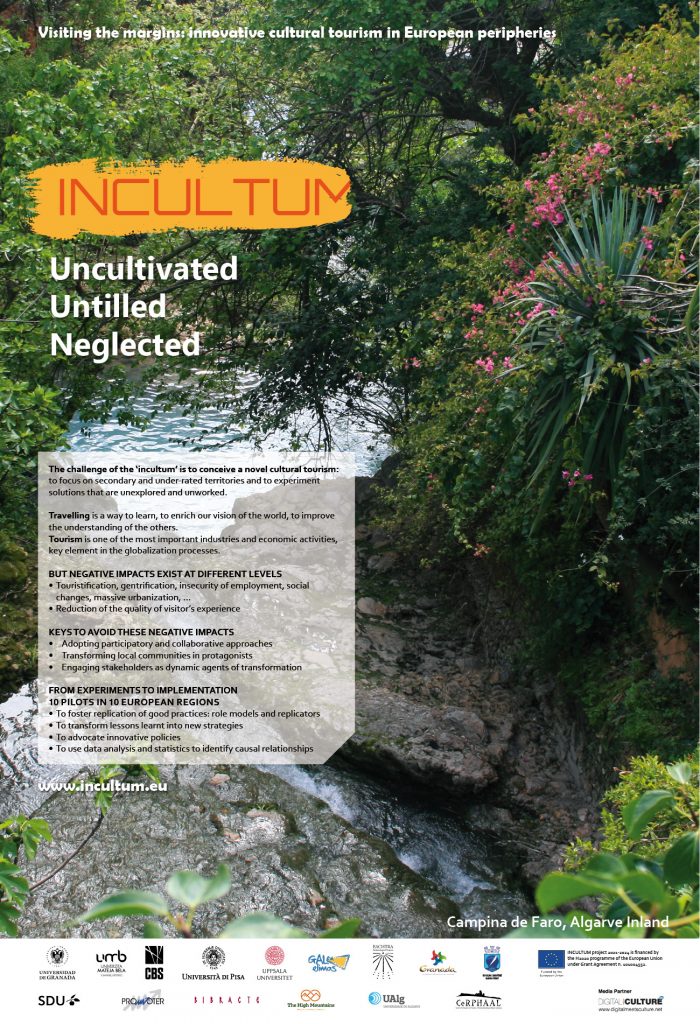
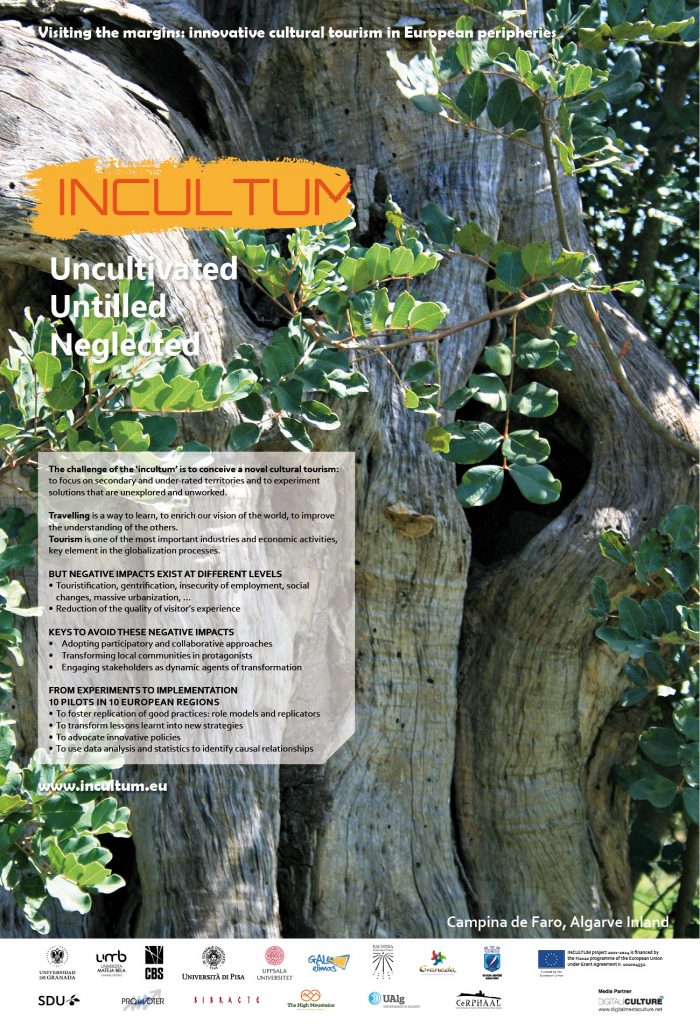
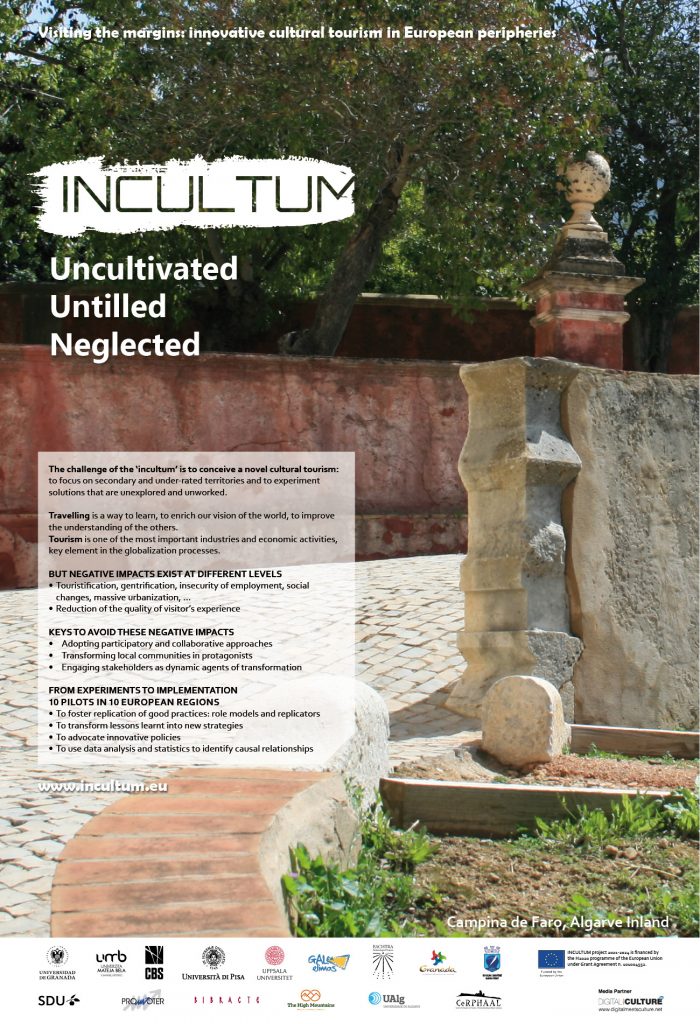
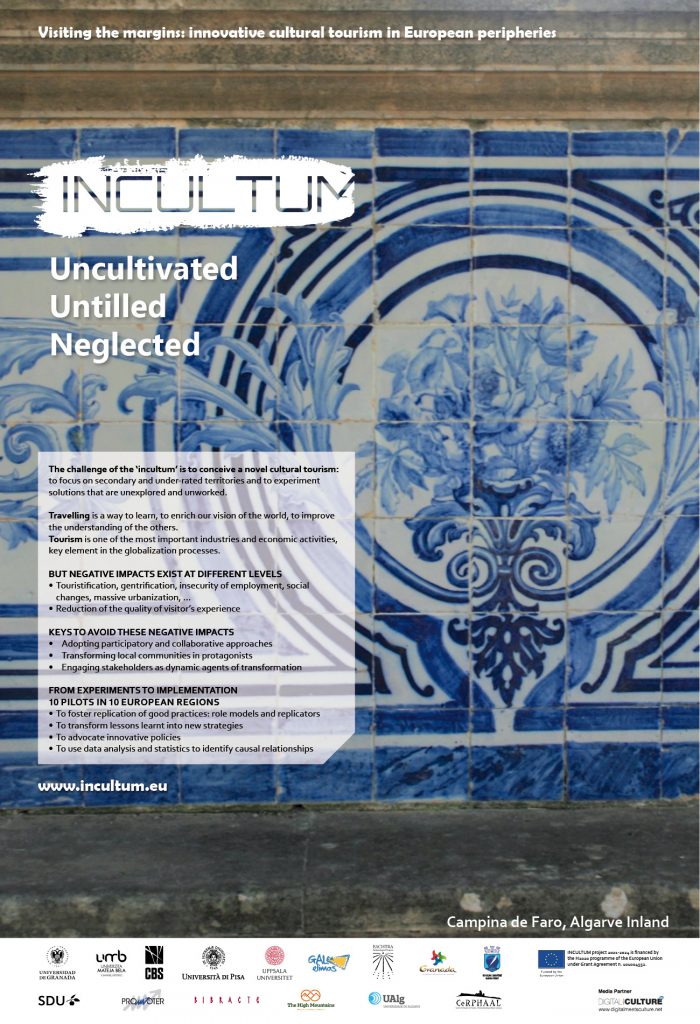
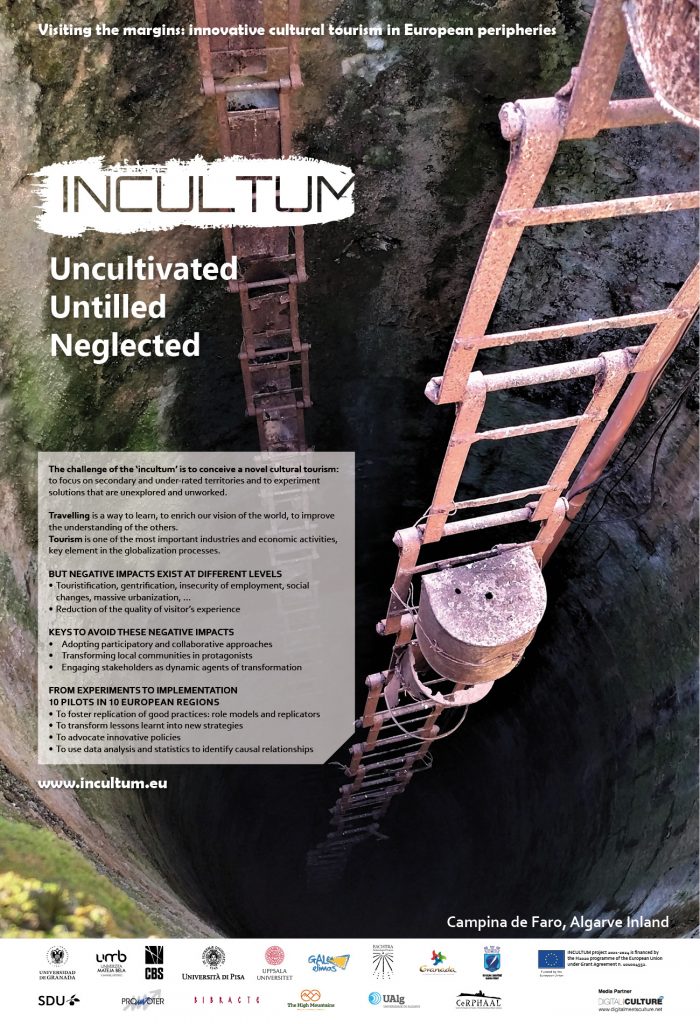
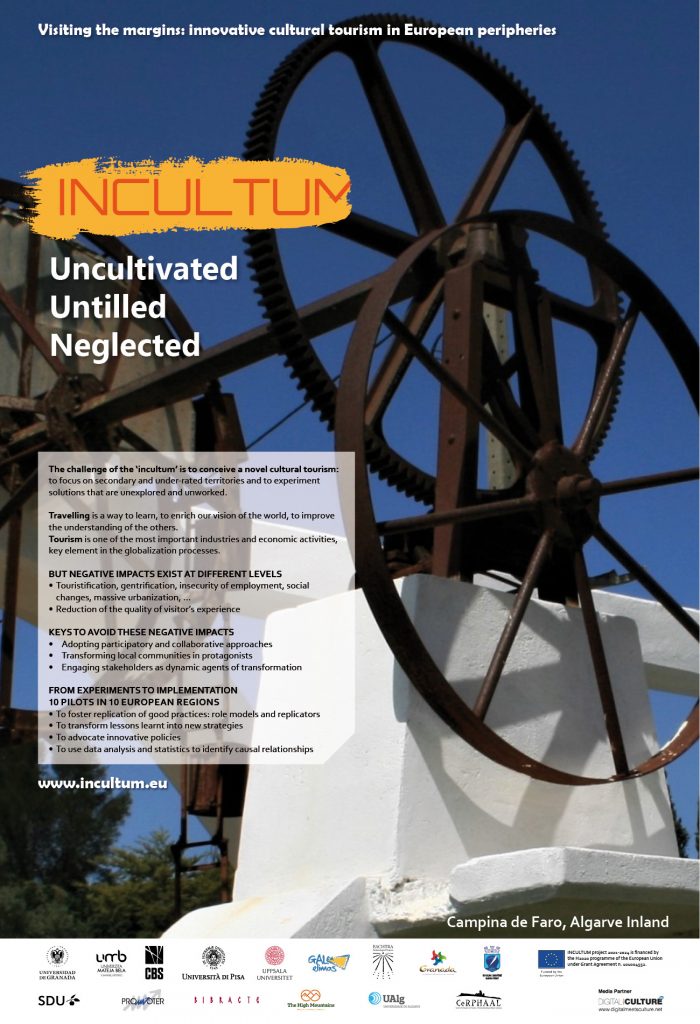
Context
Campina de Faro is part of the coastal plain of the Algarve, with an ancient and continuous human occupation. Situated on an aquifer and with fertile soils, it is still, despite urban-touristic pressure, a living testimony of the historical interdependence between the cities and the food production space (gardens, orchards) based on the traditional irrigation system (norias, wells, aqueducts, tanks, canals) now in the process of being abandoned. This hydraulic heritage, together with the old farms, is in a process of degradation, given the new irrigation methods and the strong real estate pressure on the periphery of cities. The agricultural vocation of this territory and its proximity to the Ria Formosa Natural Park, on the one hand, and the residential-tourist urban spaces on the other, make it highly important as a natural foodshed associated with urban development and sustainable tourism, both as a supplier of agricultural production (organic food) and an alternative touristic destination to sun and beach (agro-tourism, rural tourism, cultural tourism).
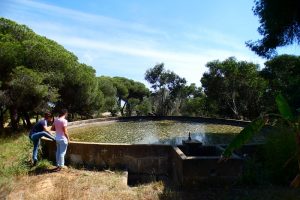
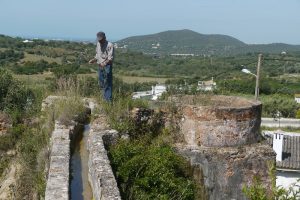
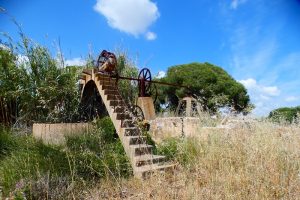
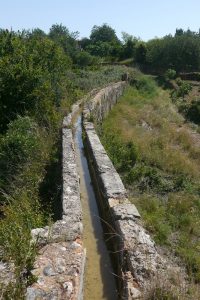
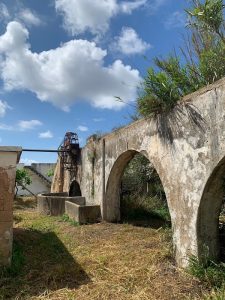
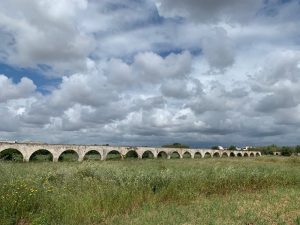
Actions
The proposed actions will be directed towards the survey, diagnosis and architectural and hydraulic rehabilitation of a group of norias, aqueducts and tanks in order to contribute to the preservation of the landscape’s memory and to the (re)activation of its identity. Other actions will aim at the revitalization of historic irrigation systems, practices and techniques, namely the recovery of traditional cultivation techniques and species of fruit trees are in the process of disappearing (tangerine trees, for example). The definition of cultural routes for the hydroagricultural heritage and the organization of little markets for the sale of vegetables and fruits in the villages, will be an attraction for visitors, bringing tourism closer to polyculture and to the Mediterranean diet, with an impact on the local economy.
The Pilot opened on 11th May 2021 with a seminar held in Faro and dedicated to engage stakeholders.
Read more about the seminar >>>
Communities involved
The proposed activities will focus on local horticultural communities and small associations of organic producers who use traditional practices in the use and management of water for irrigation and agricultural crop techniques. A participatory approach will make them the protagonists of the production and commercialization of the goods they cultivate, as well as the promotion and management of thematic routes of water heritage (collection, storage and distribution structures), organic farming (production, transformation and commercialization of citrus fruit: from orchards to jam, liquors and ice cream shops), and local open-air markets. In this way, local producers will have control and autonomy in the management of the entire process, from production to marketing and consumption, ensuring benefits generated for the entire local community.
Expected results
The local economy will benefit from the involvement and active participation of producers, small associations and the local community, not only as producers-traders, but also as managers and guides for visits to cultural routes related to agro-tourism. This new tourism segment, as an alternative to the established one (sun and beach), will be an important contribution to combating seasonality, providing new and different experiences to visitors whose experience of being immersed in the local rural culture will certainly be remarkable.
Associated partners
Associação IN LOCO desenvolvimento e cidadania.
Cross border and international nature of the pilot case
This pilot case will be directly linked to the Spanish and the Monti di Trapani (Italy) cases and will act as a cross-border action. The pilot is directly related to the Route of El Legado Andalusí.
Innovations
Irrigation canals cultural routes managed by local farmers communities
Water heritage discovery for a sustainable future
Local products and markets promotion
Digital oasis map and tools
.





